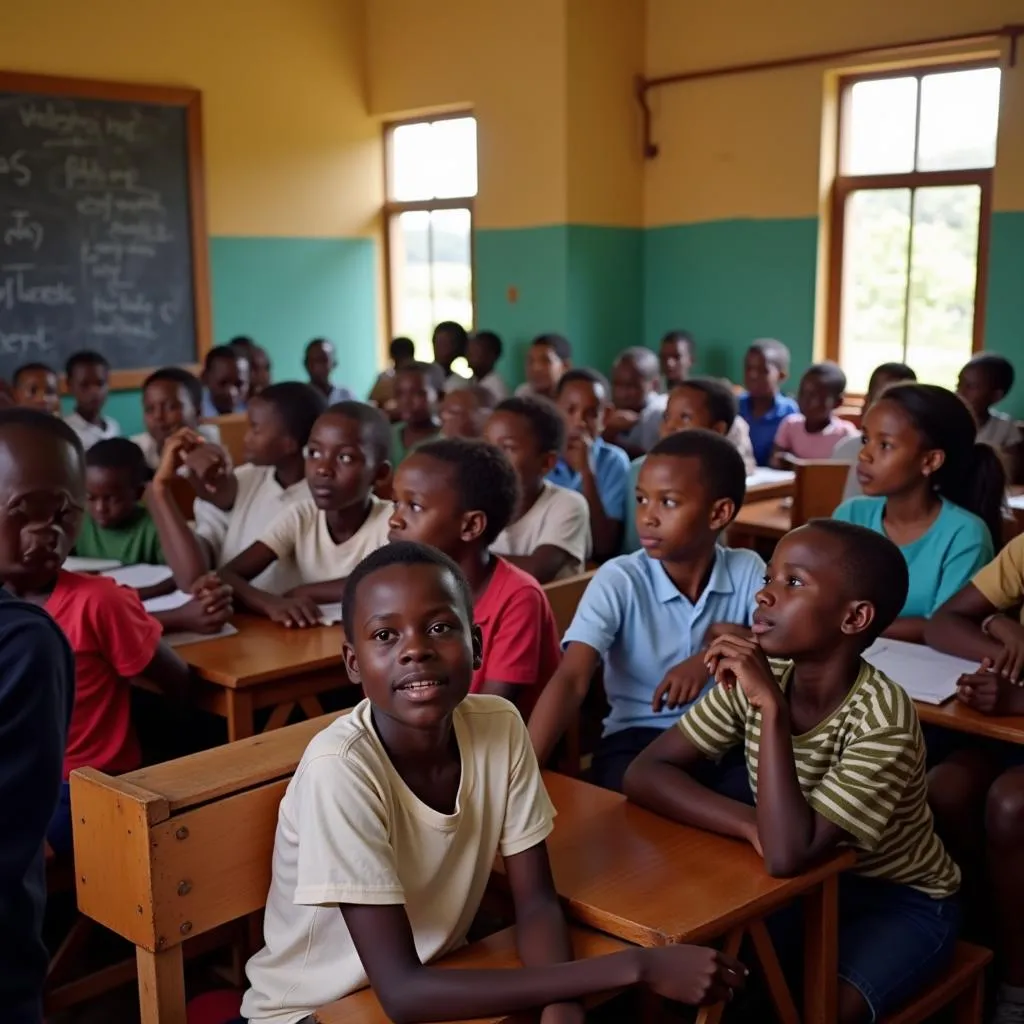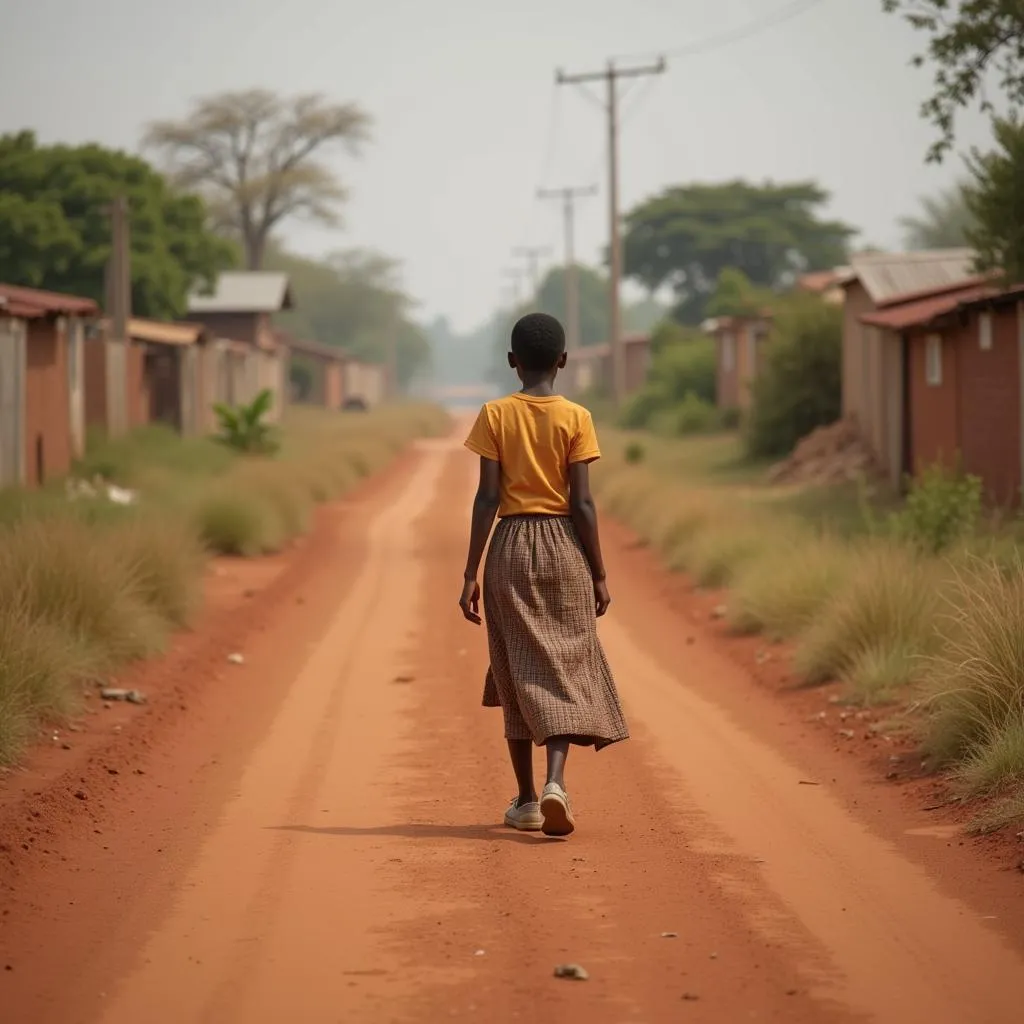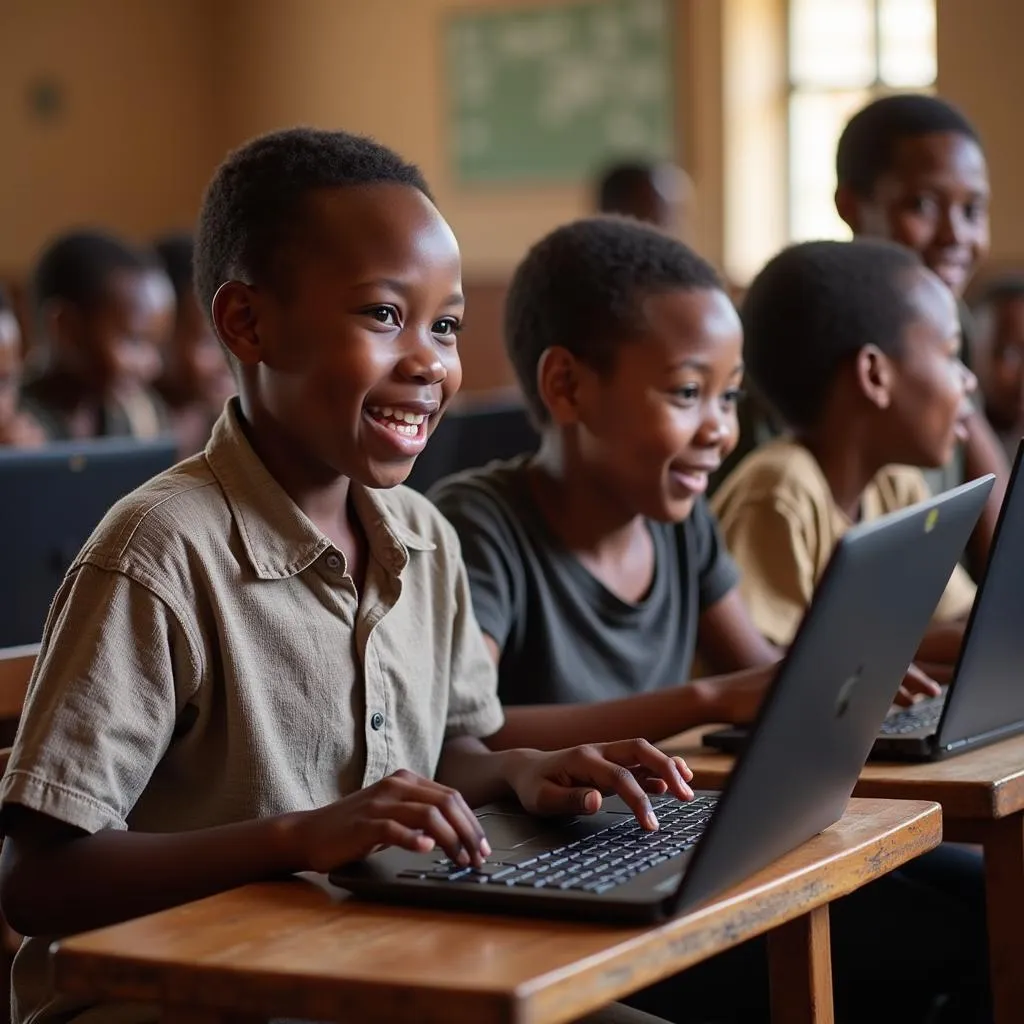The Challenges and Triumphs of African Children Education
African Children Education is a multifaceted and crucial subject that often faces unique challenges, yet also boasts inspiring triumphs. While the continent has made significant strides in improving access to education, many children still face barriers to quality learning. This article delves into the complexities of education in Africa, exploring the historical context, current challenges, and promising solutions paving the way for a brighter future.
 African Children in Classroom
African Children in Classroom
A Historical Perspective: From Colonial Legacy to Modern Struggles
Understanding the present state of African children education requires acknowledging the lasting impact of colonialism. European powers often prioritized their own agendas, neglecting the development of inclusive and equitable education systems for African populations. This legacy continues to influence educational landscapes across the continent, manifesting in inadequate infrastructure, limited resources, and curricula often detached from local context.
Post-colonial Africa witnessed a surge in efforts to expand access to education. Countries invested in building schools and training teachers, leading to significant increases in enrollment rates. However, challenges remain in ensuring quality education that equips children with the skills and knowledge needed to thrive in the 21st century.
Barriers to Quality Education: A Complex Web of Factors
The challenges facing African children education are diverse and interconnected. Poverty remains a significant barrier, forcing many families to choose between sending their children to school or providing basic necessities. This is particularly prevalent in rural areas where families rely heavily on subsistence farming and child labor.
 Girl Walking Long Distance to School
Girl Walking Long Distance to School
Geographical barriers also play a role, with remote communities lacking access to schools and qualified teachers. Gender inequality persists in some regions, limiting educational opportunities for girls who are often expected to prioritize domestic responsibilities. Furthermore, armed conflict and political instability disrupt education systems, displacing children and jeopardizing their access to learning.
Towards a Brighter Future: Innovative Solutions and Initiatives
Despite these challenges, a spirit of resilience and innovation drives positive change in African children education. Governments, NGOs, and local communities are collaborating on initiatives to improve access to quality learning.
One promising trend is the adoption of technology in education. Mobile learning platforms, digital content, and online resources are bridging the gap for children in remote areas and offering personalized learning experiences. Furthermore, initiatives focusing on teacher training and curriculum reform are equipping educators with the skills and resources needed to deliver engaging and relevant content.
 Children Using Laptops in Classroom
Children Using Laptops in Classroom
Empowering the Next Generation: Investing in African Children Education
Investing in African children education is not merely a moral imperative, but a strategic investment in the continent’s future. Educated populations are more likely to contribute to economic growth, promote social development, and champion peace and stability.
By addressing the root causes of educational inequity, empowering girls, and embracing innovative solutions, Africa can unlock the potential of its youngest generation and pave the way for a brighter future. The journey requires collaborative efforts, unwavering commitment, and a belief in the transformative power of education to shape a better tomorrow.
